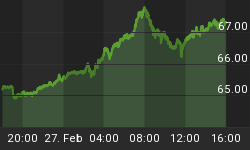Today, people who believe that gold is money think that one should hoard gold. They seek to take possession personally. Or when they have it stored professionally, they look for a private vault outside the banking system where they can (hopefully) trust their warehouse receipt. And why shouldn't they avoid the banking system?
Its corruption was always inevitable. The advent of the central banks before World War I ensured it. The theft (in the US) of the gold of the people in 1933 cemented it, along with the dollar devaluation. The treaty at Bretton Woods in 1944, in which the world agreed to treat the US dollar as if it were gold nailed it in place. The default on the US government's gold obligations in 1971 by President Nixon set it in stone. Today, we have a corrupt central bank that centrally plans money, credit, discount, and interest.
The regime of irredeemable paper money is going to collapse. Anyone who understands it should want to get out of it, and not be a creditor to insolvent banks. This is a rational personal response to an irrational system.
But it is not necessarily a vision for how the world ought to be run, or how a banking system should be designed. Today, it is necessary to hunker down, trust no one, hide one's gold, and take no unavoidable or unnecessary risk. Today, one is concerned with one's stocks of gold. One has what one has, one tries to get a little more while one can, and then one hopes that after "it" happens, one will have enough.
But let's assume we had the Rule of Law once again, reasonable expectation of enforcement of contracts, and the absolute right of property. What kind of financial system would we have? Would it be the product of fear and distrust wherein gold does not move, but is hidden and buried in vaults?
Many today propose that banks must back their reserves with 100% gold. They envision a vaulting and payment processing system only. But without realizing it (or in some cases deliberately), this policy rules out credit. Perhaps it is based on this view, that detractors of the gold standard say that there is not enough gold for modern production and trade.
And they would be right! Most businesses make a small margin. They buy their inputs such as raw materials, labor, tooling and other consumables, and they sell their product for a little more. In any competitive market, margins are thin. Therefore most companies will never have the capital to buy their inputs for cash (and even for those few who could, this would be an inefficient use of capital). And then what happens when technological change allows a new business to insert itself into the supply chain? The supply of gold coins would have to expand, which is clearly not feasible. Or else a new business could not be added to the supply chain. This problem is intractable. It does not go away when the economy grows larger, technology improves, production becomes more sophisticated, or markets interconnect globally.
The point of this essay is that if we are to have a dynamic economy with production, trade, invention, innovation, global markets, and growing efficiency then there must be a financial system in which gold flows.
One gold coin can do a lot of work in the economy if it is unshackled and thereby allowed to move to where it's needed to pay creditors and extinguish debts. Then it can move to the next and the next. In a free market, both Real Bills and bonds (and probably other credit instruments) will arise. The structure of credit, who owes whom and when each obligation is due, the amount of total credit, the terms and conditions of credit, and the business models of those who deal in credit will evolve based on the needs of the participants in the markets.
Credit will be limited only by the creativity of the entrepreneur, the inventor, the innovator, and others. That is, gold will flow and men will prosper if there is no draconian rule that bank reserves must be 100% backed by static stocks of gold, no onerous restrictions on who may deal in trade credit, and no reactionary rules against lending based on ancient hatred of "usury".
As we begin the earnest discussion of how best to go back to a gold standard, and what that gold standard should look like, I think it is important to keep in mind that gold must be free to move.















